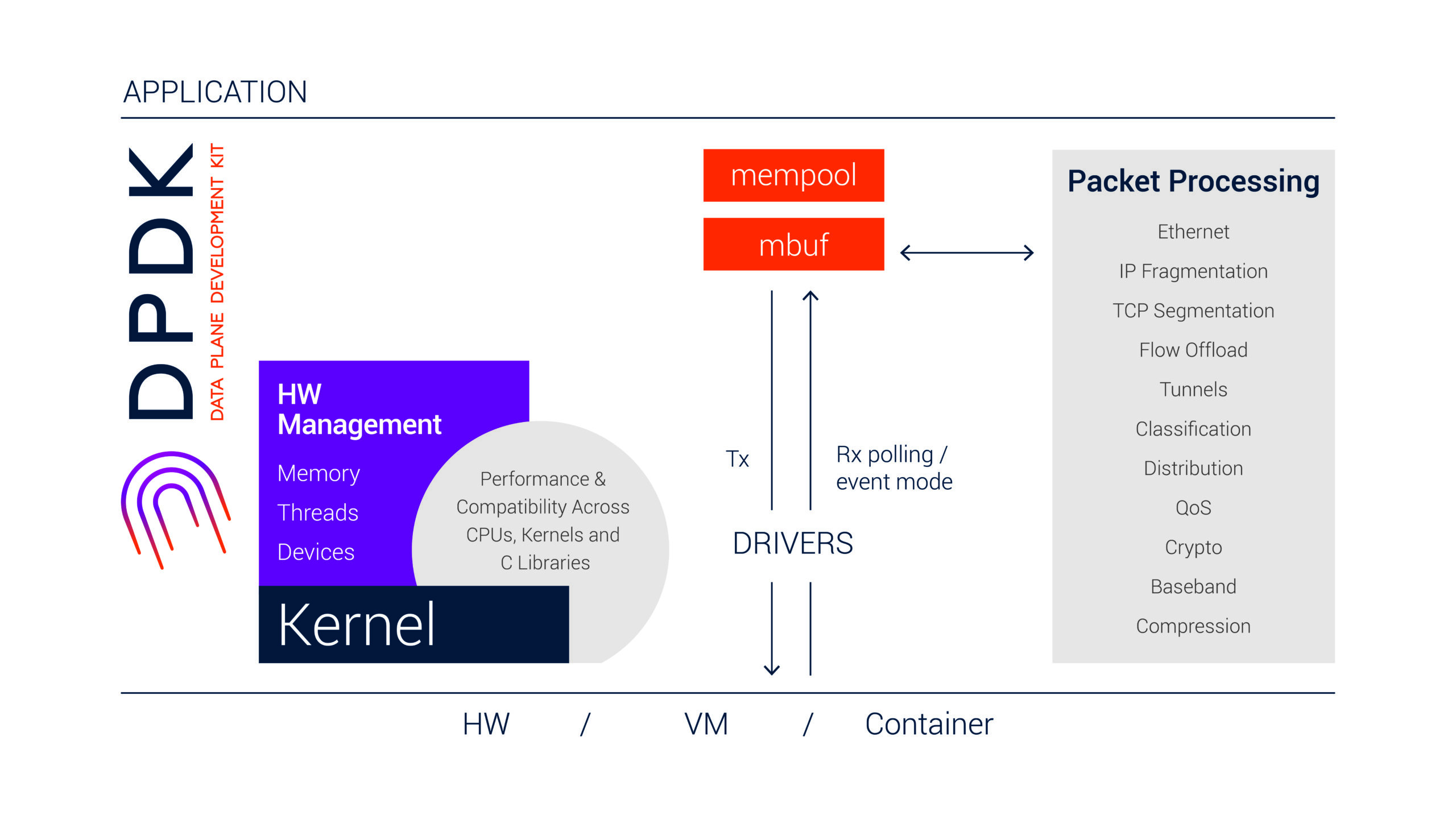Network performance, throughput, and latency are crucial for diverse applications, including wireless and wireline infrastructure, routers, load balancers, firewalls, video streaming, and VoIP. DPDK (Data Plane Development Kit), an open source project hosted by the Linux Foundation, provides a robust framework that boosts packet processing speeds on various CPU architectures like Intel x86, ARM, and PowerPC. This framework is key to rapidly developing high-speed data packet networking applications.
By running DPDK, new users can significantly accelerate their network applications’ performance due to its efficient run-to-completion model and optimized libraries that ensure all necessary resources are allocated upfront.




